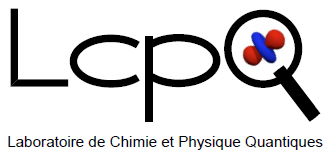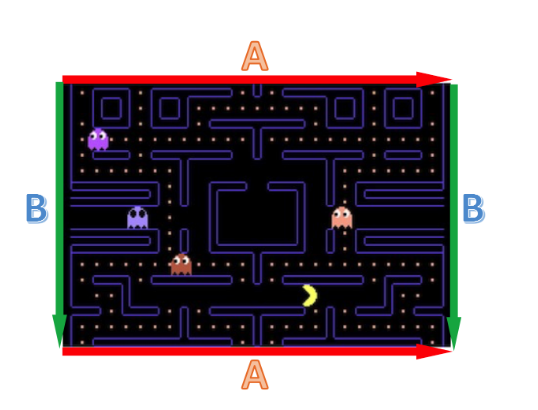QUANTUM CHEMISTRY ON A CLIFFORD TORUS
THEORETICAL CHEMISTRY AND COMPUTATIONAL MODELING

Lab: LCPQ
Duration: NanoX master Internship (8 months part-time in-lab immersion)
Latest starting date: 02/01/2025
Localisation: THEO Group,
Laboratoire de Chimie et Physique Quantiques (Director: Thierry Leininger), UMR 5626, Universit ́e Paul Sabatier,
118 Route de Narbonne, 31062 Toulouse Cedex 4, France.
Supervisors:
Arjan BERGER arjan.berger@irsamc.ups-tlse.fr
Stefano Evangelisti stefano.evangelisti@irsamc.ups-tlse.fr
Work package:
What is the best way to model a solid? A solid is usually modeled
either as an infinite periodic system or as a small finite fragment.
However, infinite periodic systems are not compatible with the long-
range Coulomb potential that governs the interactions between the
particles, while finite fragments severely suffer from border effects.
Is there not a better approach to model solids?
We have recently proposed an alternative approach to model
periodic systems, such as solids, using a Clifford topology [1,2].
This periodicity is similar to the periodicity of the PacMan universe.
When PacMan exits on one side of the screen, it reappears immedi-
ately on the opposite side.
We have successfully applied this approach to Wigner crystals,
i.e., crystals containing only electrons [3,4]. We now want to extend
our approach to crystalline solids. To achieve this, we have to describe both electrons and nuclei as well as their interactions within the Clifford topology. We will use
accurate many-body quantum theories such as coupled-cluster theory to describe the electron-electron
interactions.
During the internship the student will develop equations to perform quantum-chemistry calculations in
the Clifford topology and implement these equations in a computer code that will perform calculations on
solids.
This Master project is part of a more vast project financed by the ANR. It is desirable that the candidate
for this internship likes to discuss and exchange ideas. It is also an advantage if the candidate has some
programming skills.

References:
[1] N. Tavernier, G. L. Bendazzoli, V. Brumas, S. Evangelisti, and J. A. Berger, J. Phys. Chem. Lett. 11, 7090
(2020)
[2] M. Escobar Azor, E. Alves, S. Evangelisti and J. A. Berger, J. Chem. Phys. 155, 124114 (2021)
[3] E. Alves, G. L. Bendazzoli, S. Evangelisti, and J. A. Berger, Phys. Rev. B 103, 245125 (2021)
[4] M. Escobar Azor, A. Alrakik, L. de Bentzmann, X. Telleria-Allika, A. S ́anchez de Mer ́as, Evangelisti and J.
A. Berger, J. Phys. Chem. Lett. 15, 3571 (2024)
Areas of expertise:
During the internship the student will develop equations to perform quantum-chemistry calculations in
the Clifford topology and implement these equations in a computer code that will perform calculations on
solids.
Required skills for the internship:
It is desirable that the candidate
for this internship likes to discuss and exchange ideas. It is also an advantage if the candidate has some
programming skills.
